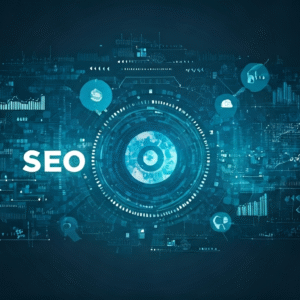Evolution of Digital Marketing
The roots of digital marketing trace back to the 1990s, coinciding with the advent of the internet. Initial forms included email marketing campaigns and keyword tagging on search engines such as Netscape. As digital media became more significant, platforms like Facebook transformed the industry, allowing brands to accurately target their audience through user data.
Mobile devices have further influenced the future of digital marketing by facilitating audience reach at any time and place. The rise of smartphone usage among internet users has accelerated trends such as app-based advertising and mobile-first strategies.
Currently, digital marketing is intertwined with platforms like social media, e-commerce websites, and streaming services. It continues to progress as marketers investigate innovative techniques such as video content and AI tools to sustain audience engagement and compete in an increasingly saturated market.
The Significance of Digital Marketing for Enterprises in the UK
Digital marketing has emerged as a fundamental element for businesses throughout the UK, seamlessly integrating into their overall business strategies. By utilizing online marketing, companies can engage with their target audience regardless of their location, thereby enhancing visibility and interaction.
Furthermore, as individuals increasingly favor digital channels, businesses can leverage these platforms to fulfill their goals. From building brand trust to converting prospects, digital marketing presents avenues for growth while maintaining competitiveness in the rapidly evolving UK market.
Broadening Reach and Target Audience
Digital marketing enables businesses to transcend traditional geographic boundaries, allowing them to engage with a larger and more defined audience. By utilizing digital channels such as social media, email, and search engines, businesses can customize campaigns to target specific groups effectively.
In contrast to traditional marketing, which employs a broad approach, digital platforms utilize sophisticated algorithms to identify and prioritize audiences based on their preferences and behaviors. Whether it involves crafting online content that appeals to a specific niche or utilizing data analytics, businesses can enhance their strategies for optimal effectiveness.
Through targeted advertising, companies can ensure their messaging resonates with a particular audience, leading to increased conversion rates. The capability to align content with audience interests guarantees brand relevance and fosters deeper customer engagement.
Quantifiable Outcomes and Data-Driven Strategies
One of the most significant benefits of digital marketing is its capacity to measure outcomes and guide decisions through data. Key performance indicators (KPIs), such as click-through rates and conversion statistics, provide valuable insights into the success of campaigns.
Digital marketing initiatives are further refined with marketing automation tools that facilitate tracking and analysis. These resources empower data analysts to examine trends, pinpoint areas for enhancement, and align marketing efforts accordingly.
Digital Marketing for Various Business Models
Different business models necessitate customized digital marketing strategies to optimize effectiveness. B2B digital marketing typically focuses on building relationships and generating leads through methods such as LinkedIn campaigns and content marketing. In contrast, B2C strategies depend on emotional connections and direct response marketing, utilizing social media platforms to craft engaging brand narratives that appeal to consumers. Small enterprises may implement flexible strategies using cost-effective digital channels, whereas larger corporations can allocate resources to extensive PPC campaigns and advanced analytics. By aligning marketing initiatives with distinct business objectives, organizations can successfully connect with their target audience and improve online presence.
B2B Digital Marketing Strategies
To execute successful B2B digital marketing strategies, it is essential to have a deep understanding of the target audience and their challenges. Employing content marketing techniques like blogs and whitepapers aids in building credibility and trust. Furthermore, utilizing social media platforms enables targeted outreach to prospective clients and industry influencers. Search engine optimization is vital for ensuring visibility in search engine results, thereby driving organic traffic. The integration of marketing automation tools can enhance lead generation and nurture prospects throughout the sales funnel, ultimately improving the overall customer experience in a competitive digital environment.
B2C Digital Marketing Strategies
Grasping B2C digital marketing strategies is crucial for effectively reaching and engaging potential customers. Approaches such as content marketing are significant, concentrating on producing valuable online content that resonates with consumers. Social media marketing takes advantage of platforms to encourage community engagement and foster brand loyalty, while email marketing campaigns provide personalized promotions directly to consumers’ inboxes. Additionally, the use of search engine optimization














